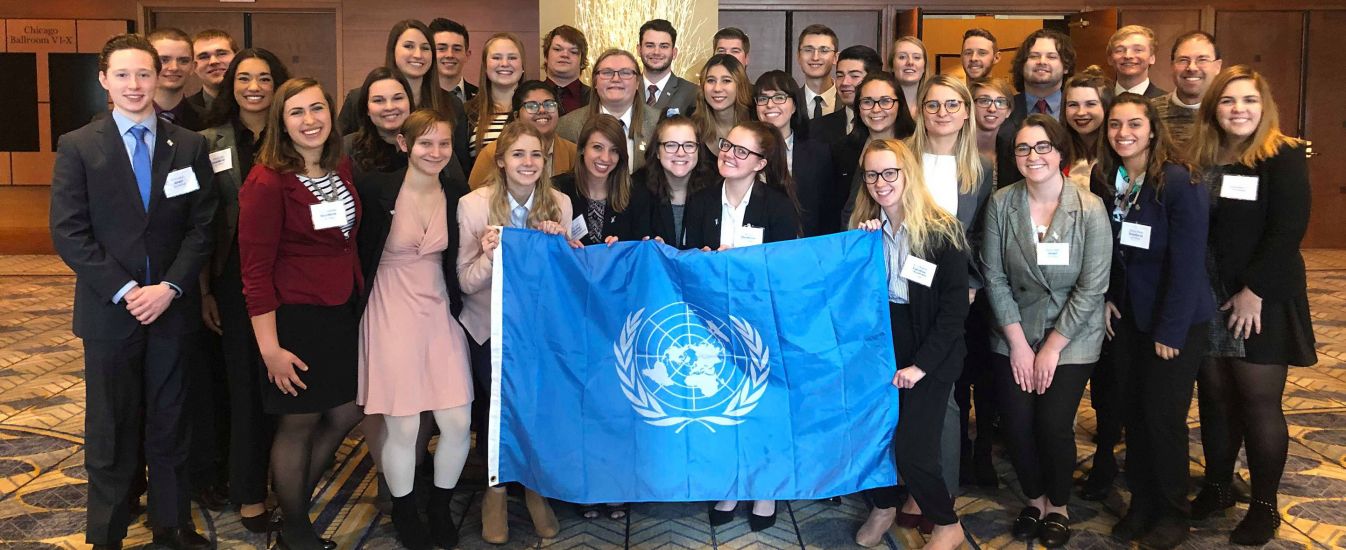General Assembly Topic 2
Protection of Journalists in Conflict Zones
The protection of journalists and media professionals has been a continuous problem in recent decades; for example in 2003, 42 journalists were killed globally (Protection of Journalists in War Zones). Moreover, there has been deliberate targeting of journalists during the conflicts in Palestinian territories (Protection of Journalists, How Does Law Protect in War?). Additionally, the situation for journalists has been deteriorating in modern times due to “the use of more sophisticated weapons against which even the training and protection of journalists is ineffective - and belligerents who care more about winning the war of images than respecting the safety of media staff” (Protection of Journalists, How Does Law Protect in War?).
Acts of violence against journalists still continue to occur despite Article 79 of Additional Protocol I of the Geneva Conventions. This protocol codifies a customary rule, that “journalists in war zones must be treated as civilians and protected as such, provided they play no part in the hostilities” (Appendix). Further steps have been taken beyond what was originally drafted during the Geneva Conventions. Resolution 2222 adopted by the UN Security Council on May 27, 2015 reaffirms the protection of journalists, and asserts that “media equipment and installations constitute civilian objects, and in this respect shall not be the object of attacks or reprisals, unless they are military objectives” which further protects the journalists themselves and the assets they use to complete their work (Protection of Journalists in War Zones).
To uphold these rules, the Rome Statute of the International Criminal Court “establishes that intentionally directing attacks against civilians, and therefore also against journalists who are not engaged in the hostilities, constitutes a war crime” (Council). Despite this, when these crimes do occur, states do not investigate the individuals responsible for the heinous acts which provides a screen of impunity which only fosters further violence against journalists (Council). Therefore, these crimes often go unreported and therefore unprosecuted which only encourages further violence.
Overall, the targeting of journalists in conflict zones around the world has continued to be an issue despite the measures and international laws put into place against the problem. The main issue has continued to be the lack of investigation and prosecution from states towards the individuals that commit these acts of violence towards media personnel and the deliberate targeting of media personnel by military operations. Understanding this, your task is to figure out what the United Nations can do in order to ensure that attacks on journalists and their equipment are properly investigated and prosecuted.
Questions to Consider:
- Has your country engaged in deliberate physical attacks on media personnel? If so, consider the motivation behind these attacks.
- Has your country imprisoned journalists for reporting on the events of the conflict?
- What measures has your country and/or armed forces taken to ensure the protection of journalists in conflict zones?
- What measures has your country’s judicial system taken to ensure the prosecution and proper investigation of the individuals that commit these violent acts?
Resources to Consider:
The Geneva Conventions of 1949 and their Additional Protocols. (2010, October 29). ICRC. https://www.icrc.org/en/doc/war-and-law/treaties-customary-law/geneva-conventions/overview-geneva-conventions.htm
United Nations. (2012). UN Plan of Action on the Safety of Journalists and the Issue of Impunity. Intergovernmental Council of the International Programme for the Development of Communication, 28th, Paris, 2012.
Works Cited
APPENDIX I: Protection of journalists in war zones. (n.d.). RSF Resource for Journalists’ Safety. Retrieved June 16, 2023, from https://training.rsf.org/appendix-i-protection-of-journalists-in-war-zones/
Council of Europe. (2022, May 2). Not a target – the need to reinforce the safety of journalists covering conflicts. Council of Europe. https://www.coe.int/en/web/commissioner/-/not-a-target-the-need-to-reinforce-the-safety-of-journalists-covering-conflicts
Protection of journalists. (n.d.). How Does Law Protect in War? - Online Casebook. Retrieved June 16, 2023, from https://casebook.icrc.org/case-study/protection-journalists

